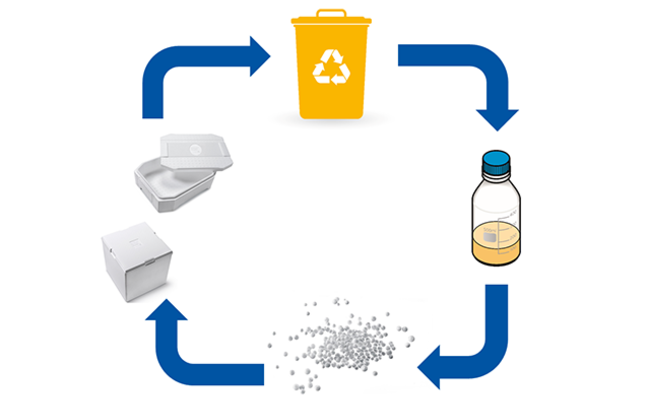
High-quality protective packaging can be produced using the raw material sourced from chemical recycling, which protective packaging specialist Storopack demonstrated during the pilot phase of BASF’s ChemCycling project. At a press conference just before K 2019, the world’s largest trade fair for the plastics and rubber industry, Storopack introduced the first prototypes of this project along with BASF and the three other partner companies – Jaguar Land Rover, Südpack, and Schneider Electric – at the beginning of July. BASF selected Storopack to test the new raw material in the production of EPS packaging, which Storopack used to manufacture a prequalified system solution for the transport of temperature sensitive pharmaceutical products as well as an innovative insulated box for the transport of foods such as fresh fish. Both prototypes are top performers across the line, offering the same high level of quality as Storopack packaging solutions produced from conventional EPS. They also fulfill the demanding hygiene requirements and guarantee food-safe application.
Breaking New Ground in the Circular Economy
“What really won us over was the fact that Styropor® Ccycled can be used in food packaging. There’s already a variety of recycling options for Styropor®, and ChemCycling can further increase the recycling volume,” says Hermann Reichenecker, Executive Director at Storopack. The ChemCycling process extracts syngas or pyrolysis oil from mixed plastic waste. Both can then be used as a raw material for the chemical industry, for example, to produce Styropor® Ccycled, which offers an alternative to conventional EPS in the production of protective packaging. Chemical recycling thus represents a more sustainable alternative to incineration and landfill, which is still permitted in some European countries. “As a result, ChemCycling also makes it possible to recycle styrofoam packaging mixed with other or contaminated plastics. Alongside mechanical recycling, ChemCycling can also help to close the materials cycle,” says Klaus Ries, Vice President of Global Business Management, Styrenic Foams, at BASF. The products are ecoloop-certified – proof that they contribute to the circular economy by using plastic waste in the production process. Storopack and BASF are thus breaking new ground together when it comes to reusing plastics. But between the pilot phase and market maturity, technological and economical aspects and regulatory matters need to be clarified. “We hope that chemical recycling and mass balance approaches can be incorporated into the calculation of recycling goals and rates as soon as possible, as this is the only way to sensibly and permanently increase recycling rates without sacrificing quality,” adds Ries.






